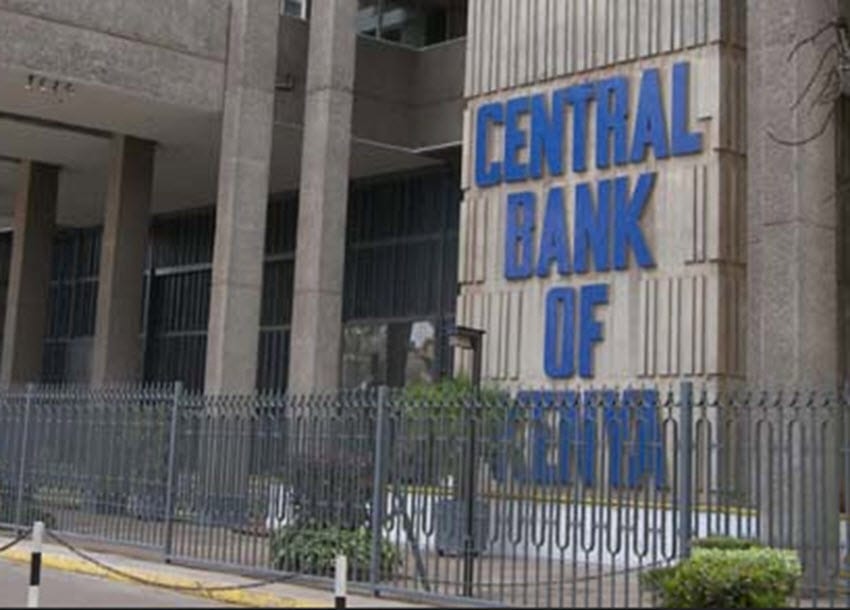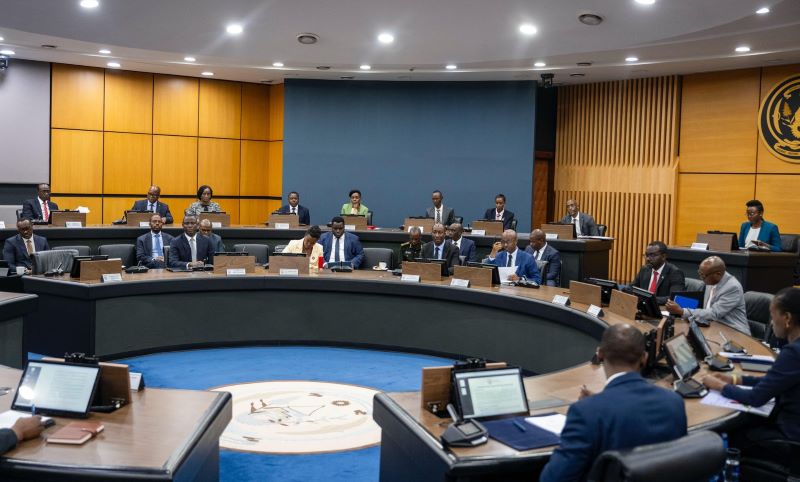CBK cuts benchmark rate by 75 basis points to 12.0 per cent on easing inflation

This is a 75 Basis Points slash, a larger cut compared to August's review when the apex bank lowered the benchmark lending rate by 25 basis points from the decade high of 13 to 12.75 per cent.
The Central Bank of Kenya (CBK) has lowered the benchmark Central Bank Rate for the second time in four years to 12.0 per cent, from the previous 12.75 mark.
This is a 75 Basis Points slash, a larger cut compared to August's review when the apex bank lowered the benchmark lending rate by 25 basis points from the decade high of 13 to 12.75 per cent.
More To Read
- CBK warns of rising debt distress, urges fiscal coordination
- CBK data shows Sh344 billion decline in mobile money transactions, steepest drop in 18 years
- CS Mbadi tables new banking rules targeting non-compliance, unethical practices
- Kenya’s exports to EAC partners grow as diaspora sends Sh1 trillion home
- CBK targets Sh40 billion in new Treasury bond auction
- Diaspora remittances from Saudi Arabia fall to four-year low after new work permit rules
CBK's Monetary Policy Committee attributed the cut to the ease in inflation which has been on decline since January to headline at 3.6 per cent in September.
The record is the lowest ever witnessed in the past decade, as a similar mark was recorded in January 2013.
"Overall inflation has declined further and is expected to remain below the midpoint of the target range in the near term, supported by stable food inflation attributed to improved supply from the ongoing harvests, a stable exchange rate and lower fuel inflation," the Committee said.
Additionally, it noted that non-food non-fuel (NFNF) inflation has moderated and is expected to remain stable, while central banks in the major economies have continued to lower interest rates in response to easing inflationary pressures.
The apex bank therefore anticipates further benchmark rate reductions in the coming months.
The MPC also noted the sharp deceleration in credit to the private sector, and the slowdown in growth in the second quarter of 2024, and concluded that there was scope for a further easing of the monetary policy stance to support economic activity, while ensuring exchange rate stability.
Surveys
Among the surveys conducted before the policy meeting, the agriculture sector survey shows that the majority of respondents expect inflation to either remain unchanged or decrease in the next three months.
This on account of improved food supply with the ongoing harvests, the stable exchange rate, and reductions in pump prices.
Nevertheless, some respondents expect moderate upward pressure on prices of most fresh vegetables from October on account of seasonal factors mainly relating to dry weather conditions in most parts of the country.
On the other hand, the CEOs survey and Market Perceptions Survey revealed sustained optimism about business activity and economic growth prospects for the next 12 months.
The optimism is attributed to the stable macroeconomic environment reflected in the low inflation rate and stability in the exchange rate, expectations of a decline in interest rates, continued strong performance of agriculture, the resilience of the services sector, and improved global growth prospects.
Nevertheless, respondents expressed concerns about the high cost of doing business, subdued consumer demand and high cost of credit.
The post-meeting report also exhibited the resilience of the banking sector with strong liquidity and capital adequacy ratios.
The ratio of gross non-performing loans (NPLs) to gross loans stood at 16.7 per cent in August 2024 compared to 16.3 per cent in June.
Increases in NPLs were noted in the transport and communication, personal and household, trade, real estate and manufacturing sectors.
Growth in commercial bank lending to the private sector stood at 1.3 per cent in August 2024 compared to 3.7 per cent in July, partly reflecting exchange rate valuation effects on foreign currency-denominated loans following the appreciation of the Shilling and the lagged effects of monetary policy tightening.
Growth in local currency-denominated loans stood at 5.2 per cent in August, with foreign currency-denominated loans, which account for about 26 per cent of total loans, contracting by 10.6 per cent
Moving forward, the MPC noted that it will closely monitor the impact of the policy measures as well as developments in the global and domestic economy and stands ready to take further action as necessary in line with its mandate.
The Committee will meet again in December 2024.
Top Stories Today














































